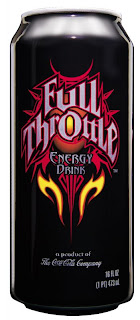
FACT 1
Energy drinks do not meet the FDA's guidelines for caffeinated beverages. FDA guidelines state that drinks containing caffeine contain no more than 65 milligrams per 12 ounces. Most energy drinks have 50-505 milligrams of caffeine in them.
FACT 2
Energy drinks are addicting and may cause a variety of negative health problems.
FACT 3
The energy drink industry makes about $5.4 billion a year.
FACT 4
Energy drinks, by law, are not required to have ingredient or warning labels.
FACT 5
Energy drinks cause low birth weight in babies and an increased risk of miscarriage in pregnant women.
FACT 6
Anyone can make an energy drink and sell it.
FACT 7
Many other countries require warning labels on energy drinks, however the U.S. does not.
FACT 8
Energy drinks are addictive and are harmful to children.
FACT 9
The complete effects of the ingredients in energy drinks are unknown.
FACT 10
Energy drinks may cause seizures.












